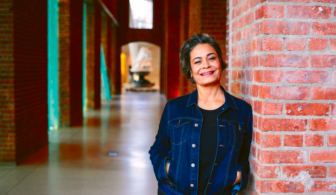 (Part 1 of 2)
(Part 1 of 2)
Critical thinking skills are an important life skill, as they help people make good decisions, understand their actions and consequences, and solve problems. I speak inside prisons with women, youth and men to talk about life skills.
As an ex-addict in recovery, I know what it looks like to NOT use critical thinking for making choices. My instinct is to act impulsively, still, and so I’ve had to learn how to pause, think and then respond instead of react to situations.
To solve problems — big or small — we need to be focused and curious about the issues we face. Here are a few things I say when I’m speaking inside a prison:
Be sure to follow through on these thoughts to determine how best to solve your particular problems.
Now, you may be wondering where these critical thinking skills come from? They actually come naturally, through a child’s curiosity. So, when you’re debating whether or not to go to the doctor for an illness, you’re critically thinking about the consequences of your decision.
With these skills, you consume information and scrutinize it to come up with an ideal solution — either by asking questions or using your imagination. Critical thinking skills help you better to understand problems and seek out potential alternatives and solutions.
4 Ways You Can Learn These Skills
With a little bit of practice, people can learn these ever-important critical thinking skills:
Be inquisitive: Children constantly ask why because they are curious about the world around them. The same goes for adults. People who ask why after they’ve thought about the why for themselves learn to formulate ideas, helping them to understand the daily goings-on of the world and how to relate to other people.
So ask yourself why often and encourage people who you meet to ask why. Take an interest in all kinds of things. Be inquisitive as to why something does or does not happen. By critically approaching an issue, you can see things in a different light. The question then becomes would you do something different?
Be observant: The first step in critical thinking is to think long and hard about a problem. Pick up a book and read. Be observant by watching people around you. Curiosity can help you to understand the world around you and the people in it.
Analyze the information: Critical thinking means sitting back and analyzing the information you are presented with. You can’t just react or convey opinions without some basis for it. Therefore, ask yourself the following questions:
- What information do you have, and is it enough to articulate an opinion or react?
- Where is the information coming from?
- Is there any relation to what you understand and know currently?
- Should you or should you not believe in the information?
Instill the skills: The process to learn critical thinking and problem-solving skills becomes second nature. People learn about them through trial and error — coming up with solutions to their problems. For example, you learn as a kid what to wear when the weather turns cold or warm. You learn what time you need to wake up to make it to work on time. These skills are learned throughout childhood to adulthood.
Deborah Jiang-Stein, author of the memoir, ”Prison Baby,” is a founder of the unPrison Project, a nonprofit working to empower and inspire incarcerated women and girls with tools for life skills, mentoring and hope. Born to a mother who was addicted to heroin and incarcerated, Deborah spent the first year of her life in prison before placement in the foster care system and later adoption. She was honored by L’Oréal Paris as one of their 2017 Women of Worth.